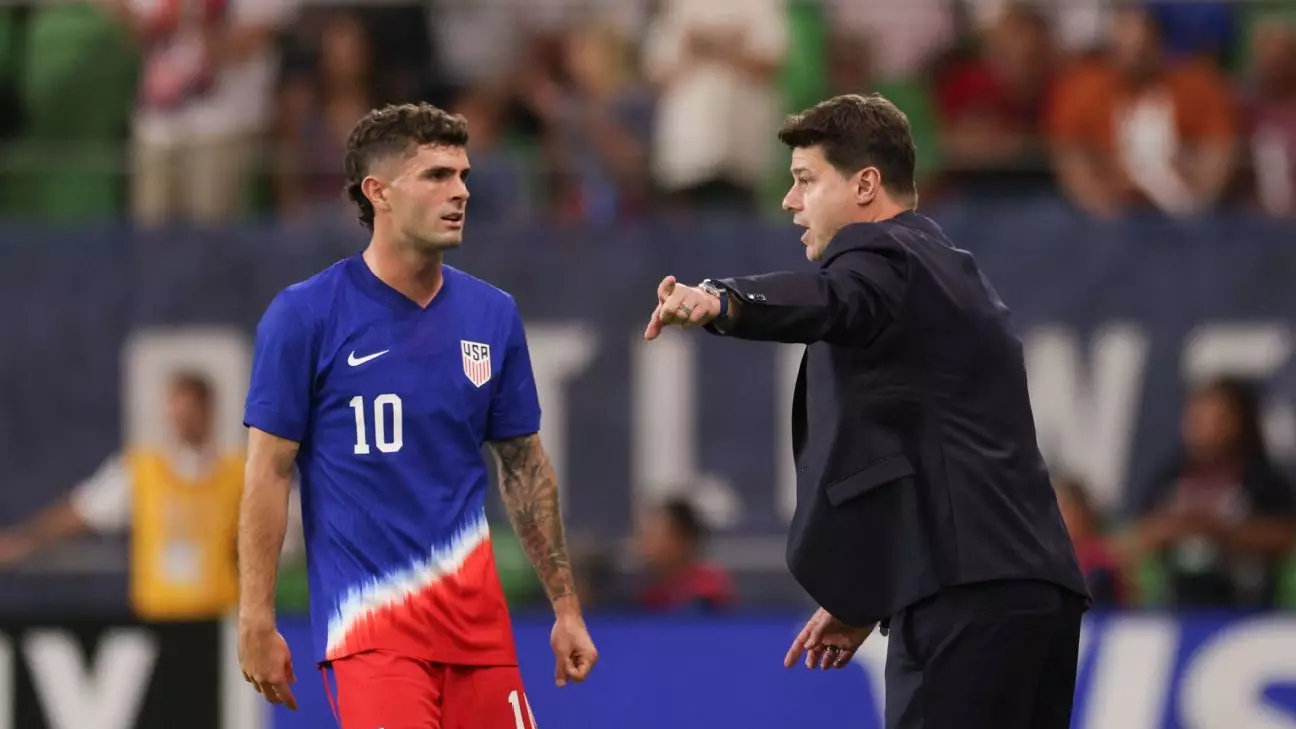Under the stewardship of Mauricio Pochettino, the United States men’s national soccer team finds itself at a crucial juncture ahead of a friendly match against Mexico. Following the untimely exit of five players due to injuries—including notable names like Weston McKennie and Zack Steffen—the coach has embraced a philosophy centered on opportunity and assessment. Pochettino’s perspective on player rotations highlights an understanding that adversity can be fertile ground for new talent to thrive, presenting an open door for fresh faces to make their mark against a traditional rival in Guadalajara.
Recognizing that the recent 2-0 victory over Panama allowed him to gauge some of the players’ abilities, Pochettino views the upcoming match not just as an exhibition but as a critical platform for evaluation. He believes that the chance for players to demonstrate their skill becomes invaluable, especially as the team gears up for more serious competitions in the future. The departure of well-regarded players may seem daunting, yet it creates a landscape ripe for experimentation and growth within the squad. It is a moment where the underused talent can step into the spotlight, driving home the importance of depth in the national setup.
Facing Mexico in their homeland poses a significant challenge, especially since it’s been twelve years since the U.S. last engaged in such a matchup abroad. Pochettino regards this opportunity as an essential learning experience for both the players and coaching staff, particularly as they prepare for the upcoming 2026 World Cup. By facing numerous hurdles, including the tense atmosphere typically found during matches in Mexico, the team can build resilience and camaraderie.
Pochettino emphasizes the need for his squad to embrace adversity, using this game to cultivate their mental fortitude and tactical acumen. Learning to cope with the pressures of competing in hostile environments will be critical as the team looks to improve their performance under future competitive settings. In building a cohesive unit, the challenge presented by Mexico will serve as a significant litmus test for the team’s readiness for higher stakes in subsequent tournaments.
The Argentine manager is fully aware of the formidable nature of the Mexican side, led by the veteran coach Javier Aguirre. Pochettino attributes significant respect to Aguirre, noting his competitive spirit and depth of experience. This acknowledgment of Mexico’s quality isn’t merely cautious optimism; it acts as a standard against which Pochettino will gauge his team’s progress. His intention to assess how U.S. players hold their own against established rivals underscores a commitment to setting benchmarks that are not just aspirational but achievable.
This approach creates a dual purpose for upcoming fixtures: the U.S. needs to compete fiercely to earn respect, while also demonstrating progression compared to the last match-up against Mexico in August 2012. The underlying message is one of ambition, where success against formidable opponents becomes a benchmark for the team’s growth.
Beyond the immediate tactical implications of the match, the U.S. team must also prepare for the Concacaf Nations League quarterfinals. The friendly serves as a crucial preamble to these more competitive fixtures. The outcomes and lessons from the encounter with Mexico will influence Pochettino’s strategy and emphasis going forward.
As the team continues to evolve, this transitional period marks a significant chapter in the narrative of U.S. soccer. By integrating new players, expanding strategic approaches, and learning from every experience—good or bad—the team can foster a culture of continuous improvement that will be essential in their quest for international success.
Ultimately, the match against Mexico could be more than just a friendly; it stands as a crucial piece of the puzzle for the U.S. Men’s National Team as they strive for excellence in international soccer. Pochettino’s open-door philosophy could usher in the next generation of players poised to take the field, promising a future where potential can transform into achievement on the biggest stages.


Leave a Reply